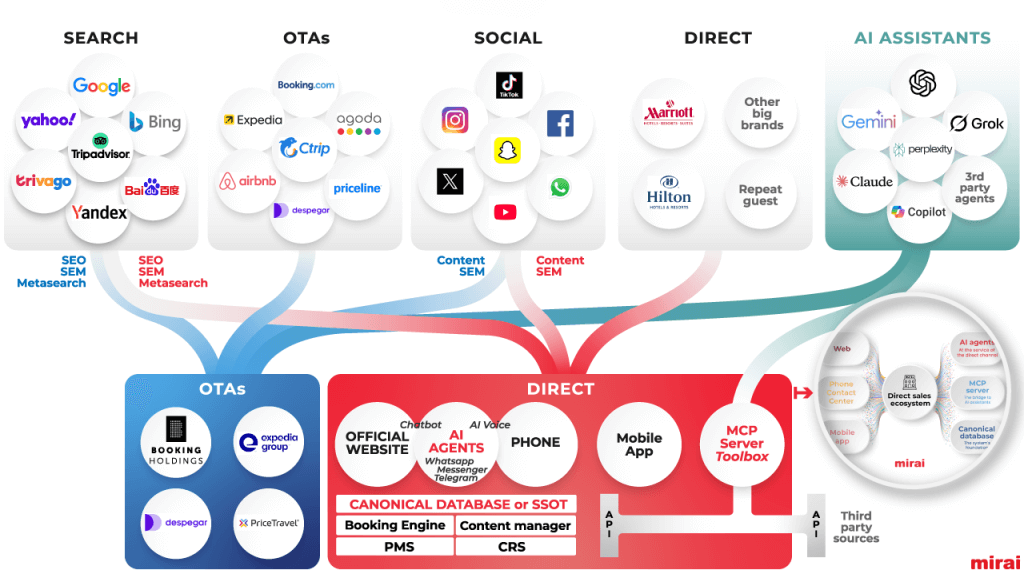
We can all agree that China is a HUGE market.
NB: This is an article from GuestCentric
Its internet users top the combined population of Japan, Russia, Mexico and US so it represents a significant opportunity across the board and it is only natural that hotels increasingly look for ways to target this segment.

However, this is no simple task. Why? The Chinese search market is one of the only places in the world where Google is not king. Actually, Google is not relevant at all! Bai Du is China’s favorite browser and it accounts for more than 80% of internet users.
So, it would seem that you should translate your website to simplified Chinese and expect a significant increase in traffic and in reservations from China, right? Well, probably not. Having your website translated to simplified Chinese is mandatory but not enough.
Why not?
Bai Du has its own rules and restrictions. It comes with its own unique and challenging environment of complex language issues, cultural differences, user behaviour, legal issues, censorship, and technical considerations.
Therefore, ranking well on Google does not mean that you will be searchable on Bai Du at all.
To rank well in Bai Du, hotels have to do things that would not normally do when dealing with Google.
So, how can you get visibility on Bai Du?
Here are the main factors to keep in mind in order to succeed in Bai Du:
- HTTPS is mandatory (still not enough);
- Your website needs to be hosted in China. – and in a “.cn” domain;
- Social backlinks are very important, however only Chinese ones – Facebook, Twitter, etc. aren’t taken into account and, in fact, penalize the website in Search Engine Results Pages (SERP);
- Baidu’s algorithm gives more weight to the meta-tags compared to Google (Meta Title, H titles, Keywords, Description);
- Bai Du doesn’t deal with Flash or JavaScript.
- The website has to have a “physical address” in China, meaning that you must have contact details;
- An Internet Content Provider (ICP) license is mandatory by the Chinese bureaucracy. Without this, ranking high on Bai Du SERP will be nearly impossible;
- Bai Du takes longer to index websites. Hotels will need to use Bai Du webmaster tool to upload the most updated sitemap, identify/fix broken links or site problems, and audit site security or URL functionality. Remember though, everything is in simplified Chinese! There’s no option to change to English or any other language;
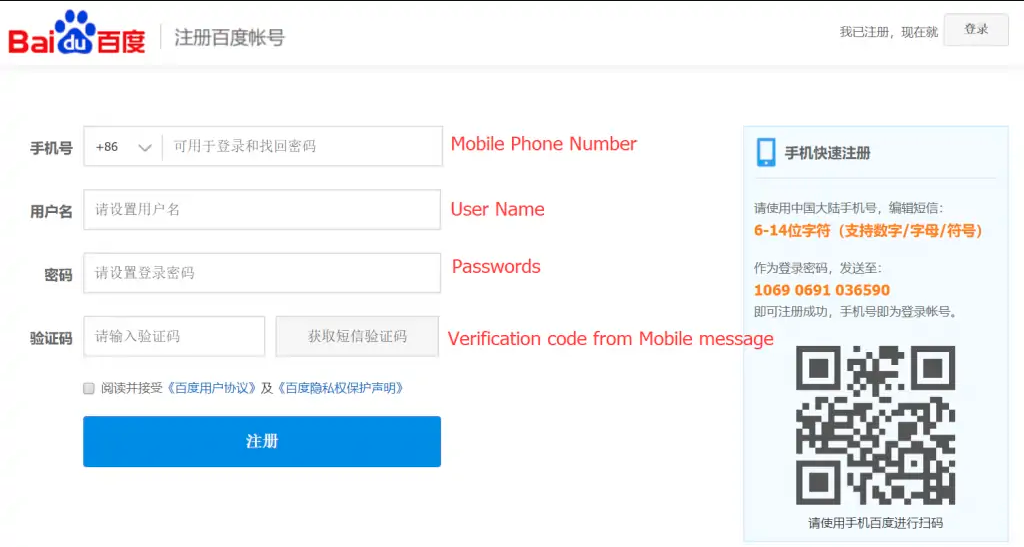
- It is necessary to have a Chinese address and a Chinese phone number.
Bai Du vs Google search
Now let’s make an experiment and see how a website translated to simplified Chinese (but does not comply with most of the rules above) shows in Google vs Bai Du.
The search was made using the name of the hotel in the Latin alphabet for google and in simplified Chinese in Bai Du:
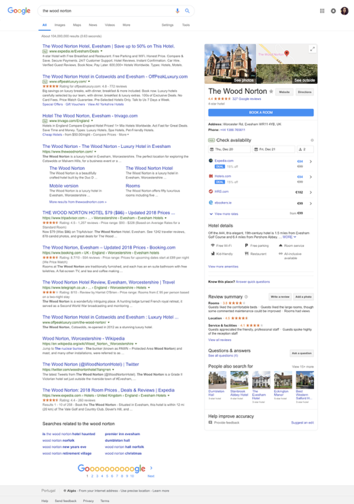

We can see that in the SERP that The Wood Norton website appears in first place in Google. However, in Bai Du it doesn’t show despite the fact that there is a translation to simplified Chinese.
In addition, when we compare hotels with roughly the same number of monthly visits and the same demographics, we realize that a website that is translated to simplified Chinese has, in fact, less visits from Chinese users than others that do not have such translation.
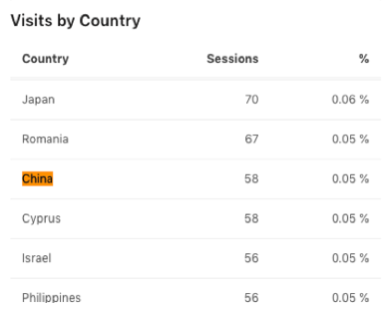
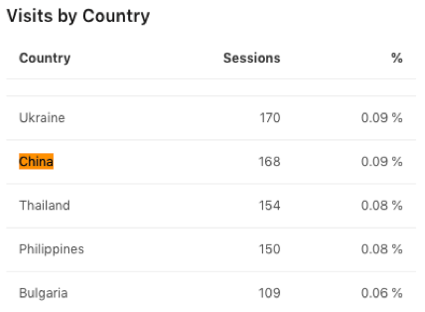
This happens because these visits are from a minority in China that searches in Google and not Bai Du, with the occidental alphabet.
Nevertheless, there might be some changes in a near future according to the South China Morning Post: Google is trying to get back into China by following the country’s strict censorship rules. However, it’s still unclear whether Google will be allowed back into China or not.
In sum, despite having similarities, Bai Du and Google are two completely different search engines and, in order to have an edge in Bai Du’s SERP, hotels need to have a unique strategy that is different from what has been done to optimize the ranking in Google SERP.
Ideally, this should be done with help from a Chinese agency to make sure all the strict requirements are covered. Simply translating your website to simplified Chinese will not get you where you want to be!


